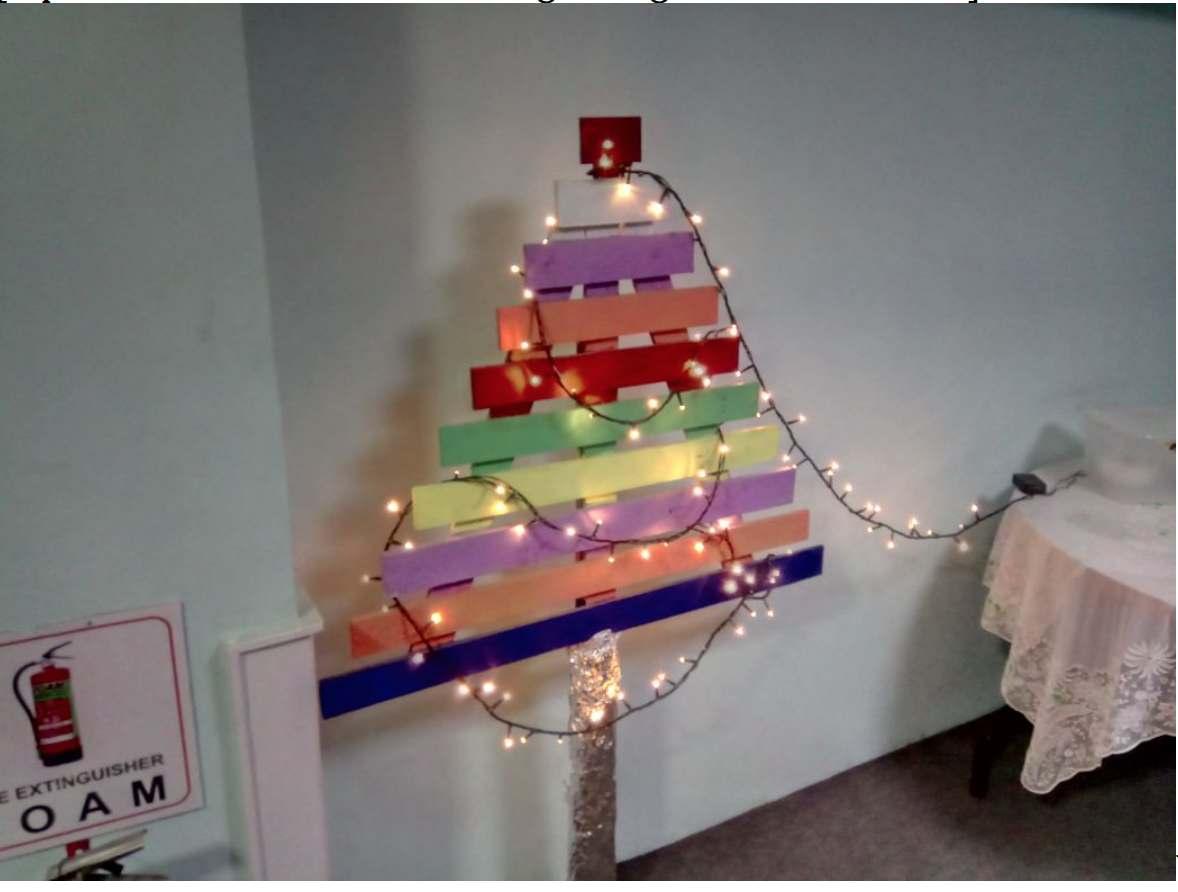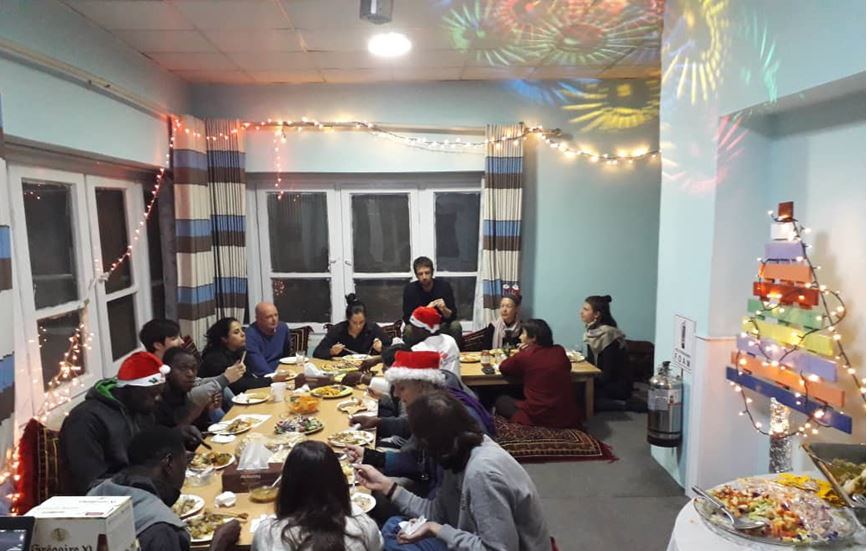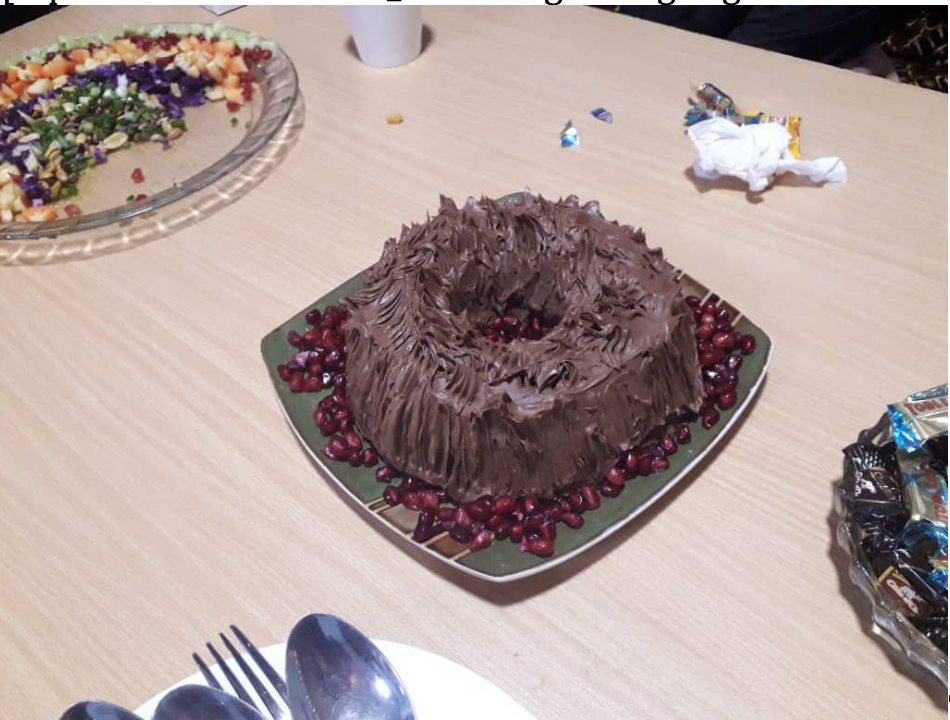Christmas in Kabul, 2018
Context
Begun in 1971, Médecins Sans Frontières (MSF) remains a major and respected global player in the humanitarian ecosystem with over 45,000 team members providing  comprehensive medical care in over 70 countries worldwide. MSF was awarded the Nobel Peace Prize in 1999, and continues to maintain high standards for both medical care and ethical organizational operation. Beginning in the 1980s the MSF movement wisely fissioned into a confederation of [mostly] autonomous associations, each an independent legal entity in the country where they are based.
comprehensive medical care in over 70 countries worldwide. MSF was awarded the Nobel Peace Prize in 1999, and continues to maintain high standards for both medical care and ethical organizational operation. Beginning in the 1980s the MSF movement wisely fissioned into a confederation of [mostly] autonomous associations, each an independent legal entity in the country where they are based.
There are MSF national offices in Australia, Austria, Belgium, Brazil, Canada, Denmark, France, Germany, Greece, Holland, Hong Kong, Italy, Luxembourg, the Netherlands, Norway, South Africa, Spain, Sweden, Switzerland, United Kingdom, and the USA. There are also branch offices in Argentina, the Czech Republic, Republic of Korea, India, Ireland, Kenya, Mexico, and the United Arab Emirates.
Unique among INGOs, in 2017 96% of MSF’s over $1.5 billion global annual budget, and 100% of its budget in Afghanistan, are made possible by private donations, insuring adherence to their basic values of neutrality and impartiality, always demanding “full and unhindered freedom in the exercise of its functions.”
MSF has worked in Afghanistan since 1980, and currently supports MSF the Ministry of Public Health in two maternities in Kabul, and also has projects in Helmand, Kandahar, Khost and Kunduz. In April 2018, a new project opened in Herat supporting the emergency department of the regional hospital there. In October 2015, US airstrikes destroyed the MSF trauma center in Kunduz, and 42 people were killed. MSF staff work in the six provinces of Afghanistan where the organization has projects.
Both before and after that incident, humanitarians working in Afghanistan have endured severe security threats, and Kabul remains unstable in part because of rapid population increases from IDPs and refugees.
Tawhidul, the impromptu party organizer
 Read below about a small group of MSF staff who took a short break from their work to attend a hastily organized Christmas party in the MSF compound in Kabul.
Read below about a small group of MSF staff who took a short break from their work to attend a hastily organized Christmas party in the MSF compound in Kabul.
I talked with MSF logistics coordinator Tawhidul on Monday, Christmas Eve, following up on a previous interview of ours. We didn’t have much time to Skype, but he mentioned that he decided that the staff should get together for a holiday meal and celebration, and so set about making calls and getting invitations out to them.
In very short order team members volunteered to contribute food to the party. Tawhid said that since it was a normal work day, cooking would begin as everyone was off duty. The venue for the party was Tawhid’s residence since it is where cooking for the

whole team is typically prepared, and they eat many of their meals. He and I agreed to Skype on Christmas so that I could hear about how the party went.
A blending of cultures
There were 21 people from at least 16 different nations at the gathering, with both global North and South fully represented. Tawhid listed the home nations of those in attendance including Myanmar, Bangladesh (Tawhid!), South Africa, Uganda, Sierra Leone, Nigeria, Belgium, France, the Netherlands, Romania, Italy, Germany, Lebanon, Mexico, Rwanda, and Nigeria. When I asked if there were any Americans he noted, “The MFS mission in Afghanistan does not allow staff from the United States, Canada, or the UK.”
Fair enough.
 Although Tawhid had imagined only about 10-15 people at the party, there were more in attendance than planned. Some flights affecting staff had been canceled due to weather, and they were of course urged to join the festivities.
Although Tawhid had imagined only about 10-15 people at the party, there were more in attendance than planned. Some flights affecting staff had been canceled due to weather, and they were of course urged to join the festivities.
Their common language was English, and the gathered spent a good deal of time talking about the various Christmas traditions in their respective homelands. They learned about the holiday traditions being practiced in many nations around the globe.
And there was music, of course. The self-appointed DJ for the evening was a team member from Rwanda, so there were a lot of African tunes.
Food!
I’ll admit a bit of ethnocentric surprise when Tawhid mentioned that he had arranged to have roast turkey for the party. Yes, turkeys are raised in Afghanistan, and one was bought, prepared and roasted for the party. Since Tawhid was the host, he had to carve the turkey, his first time doing so. The country representative said ‘he was the party coordinator, therefore he had to do it.’

Other foods included mashed potatoes, quiche, chapatis, two types of salad, beef biryani, vegetable soup, lentils, chocolate cake, and apple pie.
The duty of cutting the cake was given to a South African woman who had just arrived on Christmas Eve in Kabul with two other MSF staff. Tawhid reasoned that since she was so highly motivated to come to Afghanistan just at holiday time she deserved this honor.
Tawhid commented, “The food was all very delicious and everyone was so happy.” Needless to say, no one went home hungry, and the leftovers were stored in the main team house and to be eaten for lunches later in the week.
A team bound together by a commitment to serve
Afghanistan is, arguably, one of the most dangerous conflict zones in the world where humanitarians live and work. The threat of physical danger is ever-present, and the security situation in Kabul dictates an appropriately strict policy regarding movement of

MSF staff.
In sociology we call that kind of setting a ‘total institution’, where a large mix of non-related people live 24 hours a day with each other. This kind of intimate setting tends to generate a pseudo-family feeling where people get to know each other very well and create deep bonds of friendship.
Tawhid’s Christmas party is evidence of an intimacy that is critical for us all. Bound together by a commitment to serve, all having volunteered to be deployed to a conflict zone, these humanitarians clearly earned this night of great food and fellowship.
As I write this, on Boxing Day, the entire staff is back at work living out the mission of their organization, another day on the job…in Kabul.
If you have any comments, questions, or thoughts I can be reached here.


 Follow
Follow